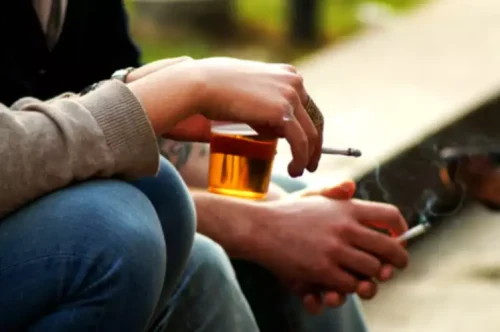
Our collaborative approach underscores the belief that there is strength in numbers, bringing together diverse recovery residences across the nation to share best practices, resources, and unwavering support for individuals in their journey towards sustainable recovery. After the virtual/on-site inspection, the DMHA Housing Team will provide you with an official communication within 15 business days. This communication will list any required quality improvements that your organization needs to engage in prior to your application being approved. DMHA is basing most of the designation requirements and on-site inspection requirements on the most current NARR quality standards. Once DMHA Housing Team has received a response from your organization concerning any required quality improvements, they will determine if your New Beginning Recovery Review certification will be approved or denied.

We are a NAADAC & FCB Approved Education Provider

We are proud to have developed a 100 hour curriculum to satisfy the educational requirements for this certification. Use the Required documents link below as a reference to gather the necessary documents and information for your Recovery Residence application for step 4. HIAS is a nonpartisan, 501(c)(3) refugee protection organization based in Silver Spring, MD. Must read and sign an attestation agreeing to allow the FCB to conduct a random criminal history check to ensure compliance with the FCB Code of Ethical and Professional Conduct standards related to criminal activity. The spreadsheet will list staff that need access to WITS, which is the claiming system for Recovery Works.
- That said, there are some umbrella organizations (see below) that promote quality assurance and oversight at recovery residences; they may even offer formal certification for residences that meet and adhere to these guidelines.
- Since our founding, NARR has placed a heavy emphasis on training, education, and professional development.
- Use the Required documents link below as a reference to gather the necessary documents and information for your Recovery Residence application for step 4.
- Together, we harness our collective strengths to build a more inclusive, supportive, and empowering recovery landscape.
- Level I Type P (Peer-run) are democratically run alcohol and illicit substance-free recovery homes.
Community
By embracing nationally recognized (NARR) standards for the operation of recovery residences, we are helping to raise the bar on the level of service and care provided through recovery residences throughout Alabama. BenefitsCertified recovery residences distinguish themselves as meeting the national Standard. It signals the delivery of a sufficient level of service proficiency to potential residents and their family members, referral sources such as carceral or justice agencies and behavioral health service providers. In addition, local, state, and federal departments are more willing to endorse and potentially fund or subsidize the services of certified recovery residences.
CRRA Statutory Requirements

We deliver training and educational content in various formats depending on audience needs and budgets. If you feel a residence is not meeting the quality standards required by its designation with the Indiana Division of Mental Health and Addiction, it is your right to voice that concern. Until recently most of our training has been in live, in-person or remote workshop formats. We tailor the content for this training to an individual client’s needs and budget, whether it be a NARR affiliate, state agency or other organizations. Please carefully review all of the credential documents before applying for certification.
The degree of monitoring and regulation in recovery residences varies widely from setting to setting. Given that recovery residences do not provide treatment, state regulations applicable to addiction treatment do not apply to them. That said, there are some umbrella organizations (see below) that promote quality assurance and oversight at recovery residences; they may even offer formal certification for residences that meet and adhere to these guidelines. Individuals considering recovery residences for themselves or their loved ones are strongly encouraged to inquire about any regulatory organizations with which a potential residence is affiliated and whether or not it is certified in states where certification is available.
NARR values the cultivation of supportive, recovery-oriented environments where individuals can share experiences and offer mutual support, fostering a sense of belonging and collective strength. If you feel a residence is not meeting the quality standards required by its certification with the Indiana Division of Mental Health and Addiction, it is your right to voice that concern. With a wealth of experience in recovery circles and the support of the National Alliance for Recovery Residences, the Alabama Alliance for Recovery Residences is well equipped to promote a healthy recovery lifestyle in communities throughout our home state of Alabama. 1,000 documented hours providing related recovery residence administrator, manager, or closely aligned recovery residence services. Ethical OperationsUpholding the highest ethical standards in operations, resident care, and community interactions, ensuring transparency, integrity, and respect in all endeavors. Join us in our mission to elevate the standard of recovery living, making a lasting difference in thousands of lives each year.
California’s Only NARR Affiliate
Together, we harness our collective strengths to build a more inclusive, supportive, and empowering recovery landscape. Recovery residences provide a structured, supportive environment for individuals recovering from addiction, promoting the acquisition and practice of vital recovery skills. With varying levels of support, from peer-driven to medically supervised settings, these residences are pivotal in nurturing the journey to sobriety and wellness. Reviewers will be examining the recovery environment and ensuring the property and program meet the national quality standards.

What is the Social (Experiential) Model?
We have expanded our capabilities and offerings to include cloud-based, modular courses that individuals may complete on their own schedules. The content for these is highly visual and based on video conversations with subject matter experts. Our first offering, a 20-module workshop on meeting NARR’s best practice standards, has been well received and is available either through our state affiliate organizations or directly from us. For a few states we have also developed customized modules tailored to state-specific requirements. To perform the virtual/on-site interview/inspection the recovery residence setting needs to have been in operation with residents for at least 30 days and have at least 40% occupancy. All persons working in NARR affiliate organizations, (recovery residence owners, operators, staff, and volunteers) are expected to adhere to a common NARR Code of Ethics.
Level III / Type S (Supervised) delivers weekly, structured programming including peer-based and other recovery support services (e.g. recovery and resiliency groups or person-driven recovery plans) and life skills development programming (e.g., job readiness or budgeting). Staff are supervised, trained, or credentialed and are often graduates of a recovery residence. Level III’s are designed to support populations who need more intense support in developing recovery capital than provided by Level I or Level II. Level III’s are required to be licensed in a few states, reflecting the therapeutic nature of the services provided. NARR commits to upholding high operational standards for recovery residences, ensuring safe, healthy, and effective living environments that facilitate personal growth and recovery. At NARR, we take pride in fostering a network of affiliates and providers that exemplify the highest standards of recovery care.
The NARR model lays the groundwork for recovery housing policies, practices, and services, offering those in recovery the chance for a sustainable and fulfilling life. The mission of NARR is to support persons in recovery from addiction by improving their access to quality recovery residences through standards, support services, government and private sector collaboration, education, research, and advocacy. Recovery residences are important assets within a community and among recovery-oriented systems of services.
